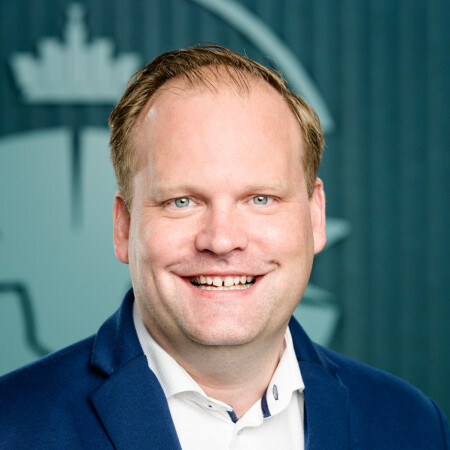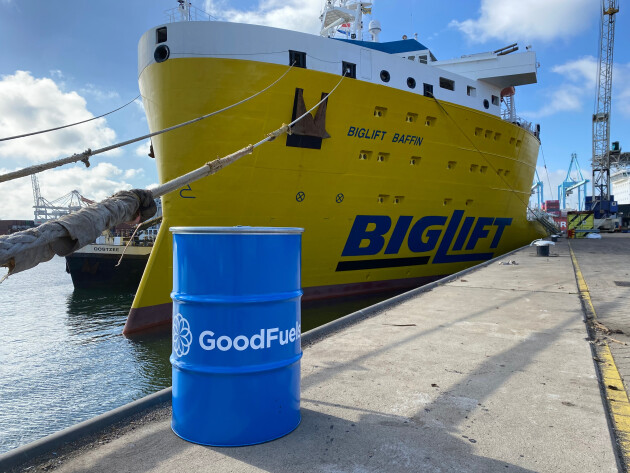
Fuel quality
The introduction of unwanted (waste) substances into fuel oil must be prevented through the implementation of additional qualitative frameworks, with a preference for globally recognized standards.
Why is this important?
Seagoing vessels frequently encounter poor-quality marine fuel at various ports where they bunker Bunkering is the process by which ships take on fuel (bunker fuel) onboard. This usually occurs in ports or at bunkering facilities, where vessels fill their fuel tanks. . This can lead to significant issues with a ship’s engines, potentially leaving a vessel rudderless in a worst-case scenario, and posing serious risks to the crew.
Moreover, the shipping industry does not want to be perceived as a means of disposing of banned (waste) substances through illegal practices. Such activities not only damage the marine environment but also endanger the health and safety of the crew on board who may be exposed to these harmful substances.
Globally, most bunkering ports still lack controls over the quality of marine fuel. This increases the of having banned and illegal substances mixed into fuel oil. Therefore, as representatives of the shipping industry, we advocate for a structural solution to prevent the addition of undesirable substances and to ensure consistently high-quality bunker fuel.
Transparency and reliability are crucial throughout the entire bunker supply chain. Just as people refuel their cars at gas stations without worrying about fuel quality, shipowners should be able to bunker with confidence.
How should we solve it?
There is a global problem involving the unwanted mixture of harmful substances in fuel oil in numerous cases. The KVNR is therefore advocating for additional qualitative frameworks for fuel oil to reduce harmful emissions, enhance safety, and better protect crews.
A survey distributed to KVNR members in spring 2024 revealed that 69% of shipowners bunkering in the Netherlands experience issues with the quality of fuel oil. Respondents reported both operational and technical difficulties, as well as health complaints linked to exposure to (toxic) fuel fumes. Studies indicate that fuel oil occasionally contains substances that do not originate from standard refinery processes.
Therefor qualitative frameworks for fuel oil are shown to be essential. Current laws and regulations still permit harmful blending practices. For example, ISO standard 8217 International standard for marine fuels. It sets rules for quality and composition to ensure the operation of ship engines and reduce pollution. primarily focuses on functional usability rather than environmental impact. Furthermore, while MARPOL Annex VI MARPOL Annex VI is an international treaty that includes regulations for reducing air pollution from ships. It focuses on emissions of sulfur oxides (SOx), nitrogen oxides (NOx), and other harmful substances. The annex establishes standards for fuel quality and introduces emission control systems to reduce the shipping industry's impact on air quality. includes rules against harmful blending, there is no universally uniform standard for assessment.
The international nature of fuel oil production further complicates tracing the origin and composition of fuel oil. Even within the European Union, varying regulations create enforcement challenges. Improved traceability of substance sources is needed, alongside the development of targeted monitoring strategies to address these issues effectively.
State of affairs - 1 November, 2024
On 19 July 2024, the Minister of Infrastructure and Water Management sent a letter to the House of Representatives, addressing the issues related to the bunkering of fuel oil in the Netherlands. This parliamentary letter outlines the results of a risk analysis conducted by the Inspectorate for the Environment and Transport (ILT), which focused on the blending of waste materials into fuel oil. It also reviews the research into qualitative frameworks for fuel oil carried out by the research firm TAUW.
The issue of harmful (waste) substances in marine fuel oil is a topic that frequently arises in public debate. Growing concerns about fuel oil quality and the potential risks of harmful admixture underscore the need for comprehensive risk analysis and clear guidelines. In response to commitments made in previous parliamentary letters and a Commission debate, the ILT has conducted the risk analysis, while research firm TAUW has examined qualitative frameworks for fuel oil.
These efforts are crucial to ensuring the safety and sustainability of bunkered fuel oil in the Netherlands. The results of these analyses will undoubtedly inform future laws and regulations in this domain.
In shaping future laws and regulations, the KVNR plays an active role by continually supporting the ILT and the Ministry of Infrastructure and Water Management with industry expertise. Together, they are exploring options to develop effective policies that will guarantee the quality of fuel oil. To this end, the KVNR also maintains ongoing dialogue with the fuel sector.
Expert & press contact




